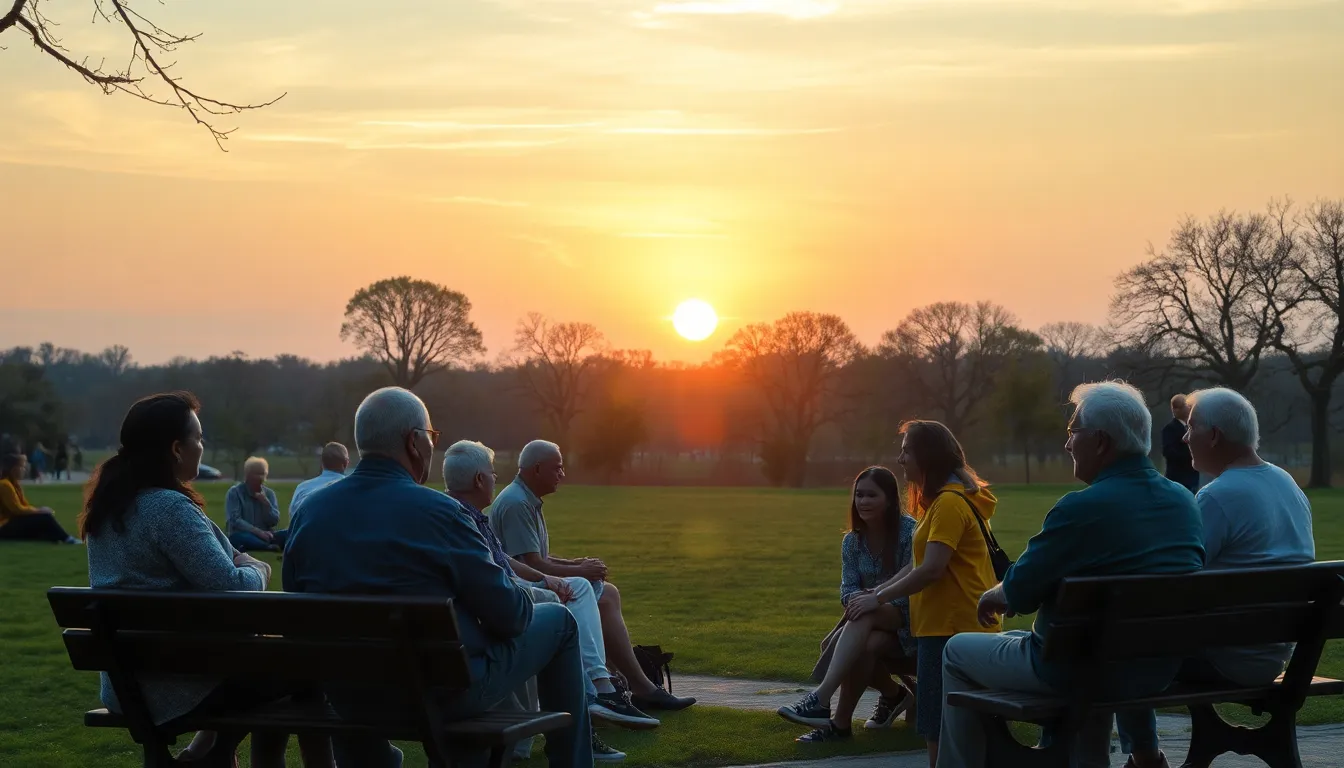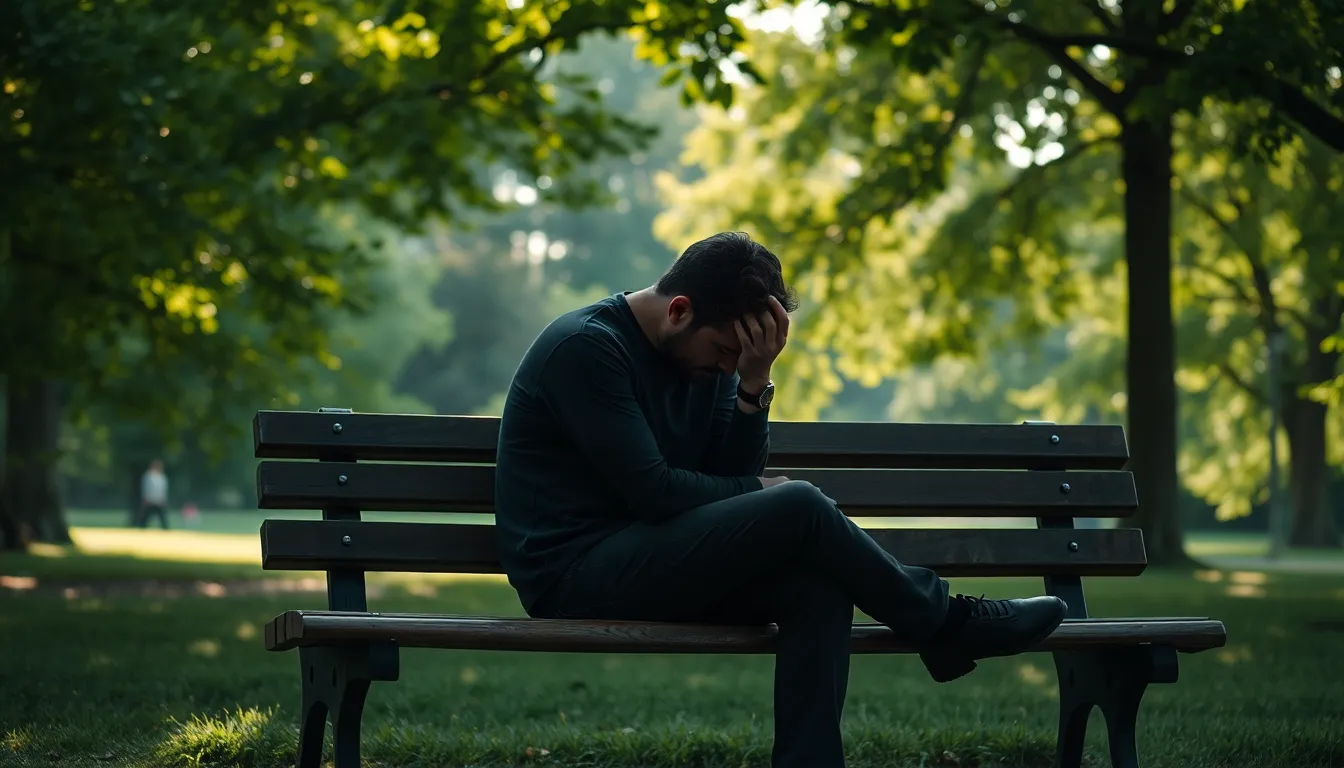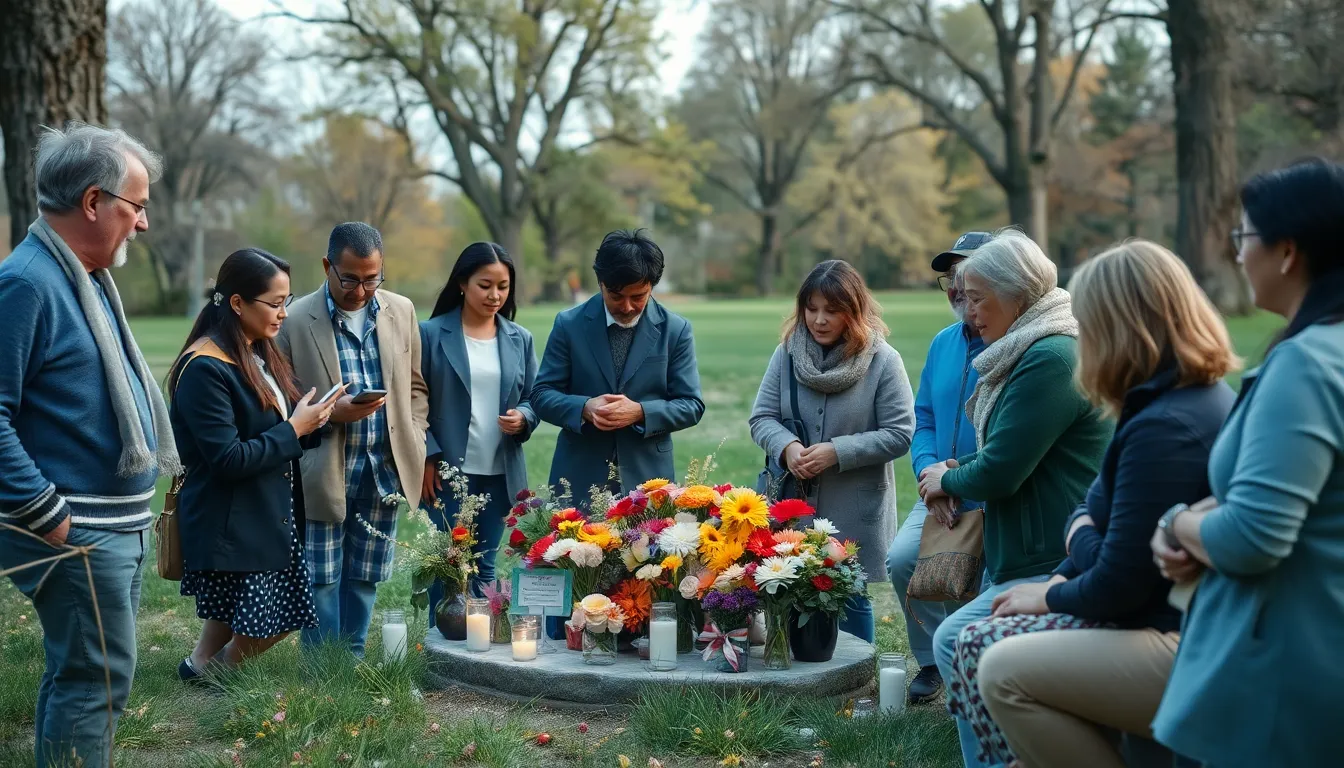We’ve all heard it whispered at funerals and felt it deep in our hearts during times of loss: “Why does God take the good ones first?” This age-old question strikes at the core of human grief and challenges our understanding of divine justice. When we lose someone who seemed to embody kindness, compassion, and love, we’re left grappling with what feels like cosmic unfairness.
The phrase itself has become a common expression of mourning, yet it carries profound theological and philosophical implications that deserve deeper exploration. Whether we’re believers questioning our faith or skeptics examining religious perspectives, this question touches something universal in the human experience.
We’ll examine various religious interpretations, philosophical viewpoints, and psychological perspectives that attempt to make sense of why life’s most precious souls often seem to depart too soon. Through this exploration, we hope to offer insight and perhaps even comfort to those wrestling with this deeply personal question.
Related Posts:
- Are Shamans Good? The Truth About Ancient Healers vs. Modern Medicine
- Mermaid Dream Meaning: What Your Subconscious is Really Telling You
- Who Is the Mermaid God? Ancient Sea Deities From Poseidon to Yemoja Revealed
- Are Mermaids Good or Bad? The Truth Behind These Mysterious Sea Creatures
- Decoding Groundhog Luck: Myth, Symbolism, and Folklore Explored
- Good vs Evil: Unraveling the Biblical Interpretations of Gnomes
- Why Does God Take the Good Ones First? Faith, Grief & Finding Peace in Loss
- What Are Mermaid Powers and Weaknesses? Mythical Abilities vs Fatal Flaws Explained
Understanding the Question Behind “Why Does God Take the Good Ones First”
Understanding this profound question requires examining the emotional and spiritual layers beneath its surface. People express this sentiment during moments of intense grief when they struggle to comprehend the loss of someone who brought light into the industry. The question reflects our deep-seated need for cosmic justice and meaning in life’s most challenging moments.
Religious believers often wrestle with reconciling their faith in a loving God with the apparent randomness of death. They wonder how a benevolent deity permits kind-hearted individuals to suffer while those who cause harm seem to thrive. This theological tension creates doubt that challenges core beliefs about divine justice and purpose.
Skeptics and non-believers pose this question differently, using it to critique religious frameworks altogether. They point to the perceived unfairness as evidence against divine providence or organized religion’s validity. Their inquiry stems from observing patterns in mortality that seem to contradict claims of cosmic order.
The universality of this question transcends religious boundaries because it touches on fundamental human experiences. Everyone encounters loss that feels unjust or premature, regardless of their spiritual background. We search for explanations that provide comfort and restore our sense of meaning when tragedy strikes unexpectedly.
Psychological factors intensify this questioning process during grief cycles. Survivors idealize deceased loved ones, remembering their positive qualities while processing intense emotions. This idealization makes their absence feel more profound and the perceived injustice more acute.
Cultural narratives also shape how we frame these questions about mortality and goodness. Many societies teach that virtue leads to reward, creating expectations that good people deserve longer, happier lives. When reality contradicts these beliefs, we experience cognitive dissonance that demands resolution through questioning divine or natural order.
Religious and Theological Perspectives
We find that major industry religions offer distinct theological frameworks for understanding why good people die young. These perspectives provide believers with spiritual explanations that transcend human logic and emphasize divine wisdom.
Christian Viewpoints on Divine Plan and Purpose
Christianity centers on God’s sovereignty in determining life’s timing and purpose. The Bible establishes that God appoints a exact time for death, followed by judgment (Hebrews 9:27). Christians believe death serves God’s larger redemptive plan through Jesus Christ rather than representing random tragedy.
Biblical teachings emphasize God’s benevolence guides all events, including mortality. Believers understand that God’s timing reflects divine wisdom beyond human comprehension. Christian theology doesn’t explicitly state God takes good people first, but believers trust that divine sovereignty orchestrates life events according to eternal purposes.
Many Christians view early death of righteous individuals as God calling them home to eternal rest. This perspective frames premature death as divine promotion rather than punishment or arbitrary loss.
Islamic Teachings on Allah’s Wisdom
Islam teaches that Allah’s decisions about death timing demonstrate perfect wisdom and justice. Muslims believe Allah knows what’s best for each individual, making death part of His predetermined plan rather than random occurrence.
The Quran emphasizes Allah’s mercy and justice, indicating death serves purposes known only to Allah. Islamic theology rejects the notion that death occurs arbitrarily, instead viewing mortality as divinely orchestrated according to Allah’s infinite knowledge.
Muslims find comfort knowing Allah’s wisdom surpasses human understanding. They believe questioning Allah’s timing reflects limited human perspective compared to divine omniscience that sees all outcomes across eternity.
Jewish Understanding of Divine Justice
Judaism approaches the question of premature death through the lens of divine mystery and complex justice concepts. Jewish teachings acknowledge that God’s ways often remain incomprehensible to human minds, requiring acceptance rather than complete understanding.
Traditional Jewish thought emphasizes living righteously rather than questioning death’s timing. Rabbinical teachings suggest God’s justice operates on scales beyond human perception, incorporating factors invisible to mortal understanding.
Jewish theology recognizes that divine justice doesn’t always align with human expectations of fairness. This perspective encourages focusing on righteous living while accepting that God’s predetermined plan includes mortality timing beyond human control.
Philosophical Approaches to Early Loss
Philosophical inquiry into why good people die young challenges our fundamental understanding of justice and divine nature. Centuries of theological debate have produced several frameworks that attempt to reconcile the apparent contradiction between divine benevolence and premature death.
The Problem of Evil and Suffering
The question “Why does God take the good ones first?” directly confronts the philosophical problem of evil and suffering. This problem challenges the coherence of believing in an omnipotent, omnibenevolent, and omniscient God who permits evil and suffering to exist. Undeserved suffering, particularly the death of virtuous individuals, creates a logical contradiction with the concept of a wholly good deity.
Philosophers have grappled with this paradox for millennia, recognizing that the presence of seemingly unjust death undermines traditional theological claims about divine perfection. Classical theistic arguments struggle to explain why a perfectly good God would allow virtuous people to suffer or die prematurely. Contemporary philosophers continue to debate whether this contradiction represents a fatal flaw in theistic belief systems or merely reflects the limitations of human understanding.
Free Will vs. Divine Sovereignty
Two competing philosophical frameworks emerge when examining divine involvement in human mortality. Each approach offers distinct explanations for why good people might die before their time.
Free Will Defense argues that evil and suffering stem from human freedom rather than divine malevolence. God granted humans the capacity to make choices, and these decisions sometimes produce negative consequences that affect both perpetrators and innocent bystanders. This perspective suggests that death timing often results from human actions or natural processes rather than direct divine intervention. But, this defense doesn’t adequately explain why morally exemplary individuals seem to experience disproportionate suffering or premature death.
Divine Sovereignty maintains that God’s will governs all events, including the timing of death. Everything that occurs serves God’s ultimate plan, even when that plan transcends human comprehension. Proponents argue that God might call certain individuals home early to protect them from future suffering or to fulfill purposes that humans cannot perceive. This view emphasizes trust in divine wisdom while acknowledging the mystery surrounding God’s decisions about human mortality.
Greater Good Defense proposes that apparent evils, including premature death, contribute to outcomes that justify their occurrence. Some philosophers suggest that losing good people serves higher purposes that couldn’t be achieved otherwise, such as inspiring others to greater virtue or preventing future moral compromises. Mystery Response advocates accept that God’s reasons for permitting suffering exceed human cognitive capacity, encouraging believers to trust divine wisdom rather than demanding logical explanations for every tragedy.
Psychological Impact of Losing Good People
Losing people we perceive as good creates profound psychological trauma that extends far beyond typical grief responses. Research confirms that these losses trigger depression, anxiety, and sleep disorders while challenging our fundamental beliefs about fairness and justice.
Grief and the Search for Meaning
Grief drives us to seek explanations that restore order to our disrupted worldview. Cultural, social, and religious frameworks become essential tools we use to process our loss and find meaning in what seems senseless. These frameworks directly influence how intensely we experience grief and which coping mechanisms prove most effective.
The search for meaning manifests differently across individuals, with some turning to spiritual practices while others explore philosophical concepts. Understanding this pattern helps us recognize that questioning why good people die represents a normal psychological response rather than a crisis of faith. Our minds naturally attempt to categorize and explain traumatic events to regain emotional stability.
Survivor’s Guilt and Questioning Faith
Survivor’s guilt emerges when we outlive those we consider more deserving of life. This psychological phenomenon intensifies when the deceased person demonstrated exceptional kindness, generosity, or moral character. The guilt becomes particularly severe following sudden or traumatic deaths where we had no opportunity to prepare emotionally.
Questioning faith often accompanies survivor’s guilt as we struggle to reconcile our religious beliefs with apparent injustice. This spiritual distress complicates the grieving process by adding existential uncertainty to our emotional pain. Research indicates that individuals with strong religious backgrounds may experience more intense internal conflict when their faith fails to provide satisfactory answers about early death.
The severity of these psychological effects varies based on exact factors including our relationship to the deceased, the circumstances of death, and our personal mental health history. Sudden losses create more intense psychological disruption than anticipated deaths, while losing someone central to our daily life produces longer lasting effects than peripheral relationships.
Common Misconceptions About Divine Selection
Popular culture and grief-stricken conversations often perpetuate several misunderstandings about divine selection and the timing of death. These misconceptions create unnecessary confusion and spiritual distress during times of loss.
Merit-Based Selection Fallacy
Many people believe God chooses who lives or dies based on their moral character or good deeds. Christian theology clearly states that divine election operates on God’s sovereign will and good pleasure, not human merit or worthiness. We see this principle throughout scripture, where God’s choices aren’t dependent on foreseen faith or good works but reflect His mysterious and purposeful love.
Arbitrary Divine Decisions
Another widespread misconception suggests that God’s choices resemble random selection, like drawing names from a hat or flipping a coin. Biblical doctrine firmly establishes that divine election is deliberate, intentional, and purposeful rather than capricious or lacking wisdom. God’s decisions reflect His ultimate knowledge and sovereign authority over all circumstances.
Unfairness Arguments
Critics often argue that selective divine intervention creates inherent unfairness in mortality outcomes. Theological sources emphasize that God’s choices remain just and good because His wisdom transcends human understanding of fairness. We must recognize that divine justice operates beyond our limited perspective on what constitutes equitable treatment.
The “Good Ones First” Myth
The phrase “God takes the good ones first” lacks biblical or theological foundation in official religious doctrine. This popular saying emerges from emotional responses to loss rather than scriptural truth. Divine selection doesn’t prioritize moral superiority when determining life span or death timing.
Conditional vs. Unconditional Election
Some denominations teach that God’s election depends on predicted human responses or behaviors. But, many Christian traditions maintain that divine election is unconditional and flows from God’s sovereign will alone. We observe this principle in theological discussions about salvation and divine purposes throughout history.
These misconceptions often intensify grief and create theological confusion during vulnerable moments. Understanding the actual nature of divine selection according to established religious doctrine helps us process loss with greater clarity and spiritual peace.
Finding Comfort and Purpose in Loss
Loss transforms us in ways we never expect, especially when we lose those who brought light into our lives. We can find healing and meaning through intentional actions that honor their memory and help our own growth.
Honoring the Legacy of Good People
Continuing the good deeds and ideals of those who have passed helps us find meaning in their loss. We preserve their impact by adopting their values and carrying forward their mission in our daily lives.
Perpetuating Their Values becomes our responsibility as survivors. We embody their kindness by showing compassion to others who face similar struggles. Their generosity inspires us to give freely of our time and resources. We practice their patience when dealing with difficult situations and people.
Creating Memorial Actions transforms grief into purposeful activity. We establish scholarships in their name to support causes they championed. Volunteer work at organizations they supported extends their charitable spirit. We organize community events that celebrate their contributions and inspire others to follow their example.
Sharing Their Stories keeps their memory alive across generations. We document their life experiences through written accounts, photo collections, and video testimonials. Their wisdom guides others through recorded conversations and documented advice. We tell their stories during family gatherings and community events to ensure their lessons endure.
Living by Their Example becomes our daily practice. We make decisions by considering what they would have done in similar circumstances. Their integrity influences our business dealings and personal relationships. We approach challenges with the same determination and optimism they demonstrated throughout their lives.
Growing Through Grief and Questions
Reflecting on the impact of the deceased and finding ways to heal aids in personal growth during our darkest moments. We discover strength we didn’t know we possessed while handling the complex emotions that accompany profound loss.
Processing Our Emotions requires honest self examination and acceptance of our feelings. We acknowledge anger toward God or circumstances without guilt or shame. Sadness becomes a natural response that we allow to flow through us rather than suppress. We recognize that grief comes in waves and affects us differently each day.
Seeking Spiritual Understanding deepens our faith even as we wrestle with difficult questions. We engage in prayer or meditation to find peace beyond our human comprehension. Religious communities provide support and wisdom from others who’ve faced similar losses. We study sacred texts that address suffering and divine purpose with renewed interest and urgency.
Embracing Personal Transformation emerges from our struggle with loss and questioning. We develop greater empathy for others experiencing grief and hardship. Our priorities shift toward relationships and experiences that truly matter. We become more intentional about expressing love and appreciation to those still with us.
Building Resilience strengthens our ability to face future challenges with courage. We learn coping strategies that serve us during subsequent difficulties. Our faith grows stronger through testing rather than weaker through doubt. We discover that questioning God doesn’t diminish our relationship with the divine but can deepen it through honest dialogue.
Conclusion
While we may never fully understand why certain people leave us sooner than expected our journey through grief can lead to profound spiritual growth and deeper faith. The question “why does God take the good ones first” reflects our human struggle to comprehend divine timing rather than revealing any cosmic injustice.
We can find peace by honoring those we’ve lost through continuing their legacy of kindness and goodness. Their impact doesn’t end with death—it lives on through the lives they touched and the values they instilled in us.
Remember that questioning God during times of loss is a natural part of the healing process. These difficult moments often strengthen our relationship with the divine and help us develop greater compassion for others walking similar paths of grief and faith.
Frequently Asked Questions
Why do people ask “Why does God take the good ones first?”
This question emerges during intense grief when we lose someone who brought positivity and kindness into our lives. It reflects our struggle to understand what feels like unfair or premature death, creating emotional turmoil as we try to reconcile our beliefs about divine justice with the reality of loss.
Is there biblical support for the phrase “God takes the good ones first”?
No, this phrase lacks biblical foundation. It arises from emotional responses to grief rather than scriptural truth. Divine selection is based on God’s sovereign will and purposeful plan, not on human merit or the perceived “goodness” of individuals.
How do different religions explain why good people die young?
Christianity views death as part of God’s redemptive plan, trusting in divine sovereignty. Islam emphasizes Allah’s perfect wisdom and predetermined timing. Judaism approaches it as divine mystery, encouraging acceptance of God’s timing while focusing on righteous living rather than questioning mortality.
What psychological effects occur when we lose someone we consider “good”?
Losing good people can trigger depression, anxiety, sleep disorders, and survivor’s guilt. It challenges our beliefs about fairness and justice, disrupting our worldview. The grief drives us to seek explanations that restore order and meaning to our understanding of life.
How can we find comfort and purpose after losing a good person?
Honor their memory by continuing their good deeds and values, creating memorial actions, and sharing their stories. Process grief honestly through spiritual understanding, allow personal transformation, and recognize that questioning during grief can actually deepen and strengthen your faith.
Does questioning God during grief mean we lack faith?
No, questioning God during grief is a natural response that can actually strengthen faith. Honest self-examination and seeking spiritual understanding often leads to deeper relationship with the divine. Many biblical figures questioned God while maintaining their faith and devotion.
















